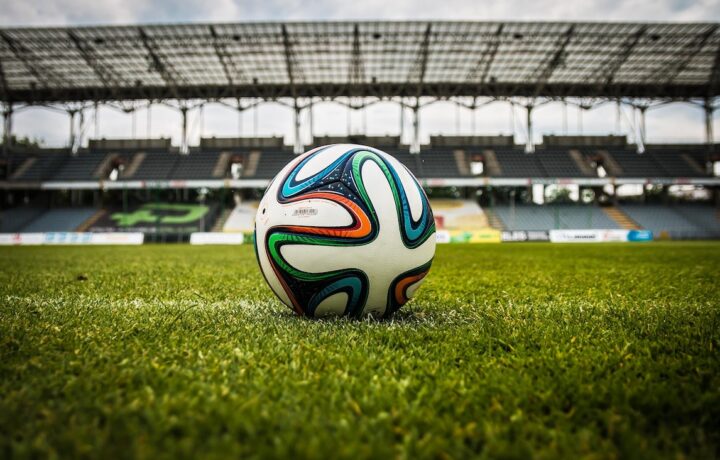On December 2, 2010, Qatar was awarded the rights to host the 2022 Fédération Internationale de Football Association (FIFA) World Cup, setting the stage for becoming the first country in the Middle East to do so. The decision has been controversial since the award. The Middle East loves football. However, religious law in many Middle Eastern countries forbid many liberal Western behaviors. The 2010 award has been fraught with challenges.
Within 6 months of the award, then FIFA vice-president Jack Warner, who was suspended himself at the time, leaked an email from FIFA’s general secretary claiming Qatar had bought the rights to host the World Cup. This was quickly followed by other whistleblower claims, reversed claims, and later claims of whistleblower coercion.
In 2013 British newspapers began publishing investigative reports of thousands of workers in Qatar who were being exploited and abused in “modern-day slavery”. Later in the year, Amnesty International found Qatar’s construction sector abusive and exploitative.
By 2018 an Amnesty International report stated migrant workers were giving up on justice and were returning home penniless. In response, Qatar allowed workers to change employers and leave the country without their employer’s permission and an exit permit. Qatar, with the highest per capita income on the world, announced a monthly minimum wage of 1,000 riyals ($275) in late 2020. In 2021, Amnesty International stated withholding salaries and charging workers to change jobs were commonplace, despite stated labor reform.
A year later, the US Department of Justice reported that representatives working for Russia and Qatar had bribed FIFA officials to secure the hosting rights for the World Cup Football Tournament.
Some Football Traditions are in Direct Conflict
The spread of soccer/football throughout the world has brought together people from diverse cultures in competition and a shared passion. However, this passion has brought a worldwide concern for hooliganism. Emotional highs can and do escalate into violence, both on and off the field, giving rise to the term ‘football hooliganism’ which is rioting or destructive behaviors in direct correlation to the spot. A contested football competition is nothing new.
Political protest at FIFA football matches date back to 1938 with France and Italy, East and West Germany in 1974, the U.S. and Iran in 1998. This year is especially tense for several reasons. Russia has been banned due to the war. Iran’s internal crackdowns has already caused significant protest by at risk fans in Qatar, who will return home – an hour’s flight away.
Fans trying to protest human rights conditions – from treatment of exploited workers in Qatar to LGBTQ rights issues – are having their desires frustrated by the hosting country. The Welsh Football Association stated they were “extremely disappointed” after fans were told to remove Rainbow colored bucket hats ahead of the World Cup match against the U.S. in Qatar. Interestingly, males were allowed to keep their hats, but security staff seized those in possession of women.
Several European teams will not be wearing “OneLove” armbands at the World Cup in Qatar due to the danger of receiving cautionary yellow cards. The protest rainbow colored heart shaped armbands were forbidden by the organizers with respect for the host country. An American journalist was detained for more than 30 minutes for wearing a rainbow T-shirt but was eventually allowed into the stadium in his garment. FIFA is now urging Qatar World Cup officials to stop confiscating rainbow clothing
The drinking of alcohol is ubiquitous in and around football. This is well known and in conflict with Islamic law. Last Friday, at the behest of Qatar’s Al Thani royal family, fans will not be allowed to drink at the eight stadiums hosting matches. Beer will be sold at fan zones in Doha, the capital of Qatar, at about $14 for one 16-ounce beer. Qatar’s about-face on alcohol signaled that FIFA, soccer’s governing body, may no longer be in full control of its showcase championship. This decision has infuriated fans, leaving organizers scrambling and complicating FIFA’s $75 million sponsorship agreement with Budweiser.
Qatar is reportedly to have none of this. Fans have been warned and they will be arrested. Rules are very harsh. To that end, Qatar worked with Turkey to bring in an additional 3,250 security officers to Qatar for the World Cup and trained numerous Qatari security personnel.
The cost of the competition is estimated to be more than $200 billion dollars. The image of the World Cup has been diminished and filed with controversy every year since the awarded to the Qatar in 2010. The intersection of international affairs, policy, and sport is nothing new. The current FIFA games are just one more example of how host country matters – it’s unclear the money FIFA supposedly accepted to host the games will be more than the $47 million Budweiser is asking for after the last minute beer ban.



